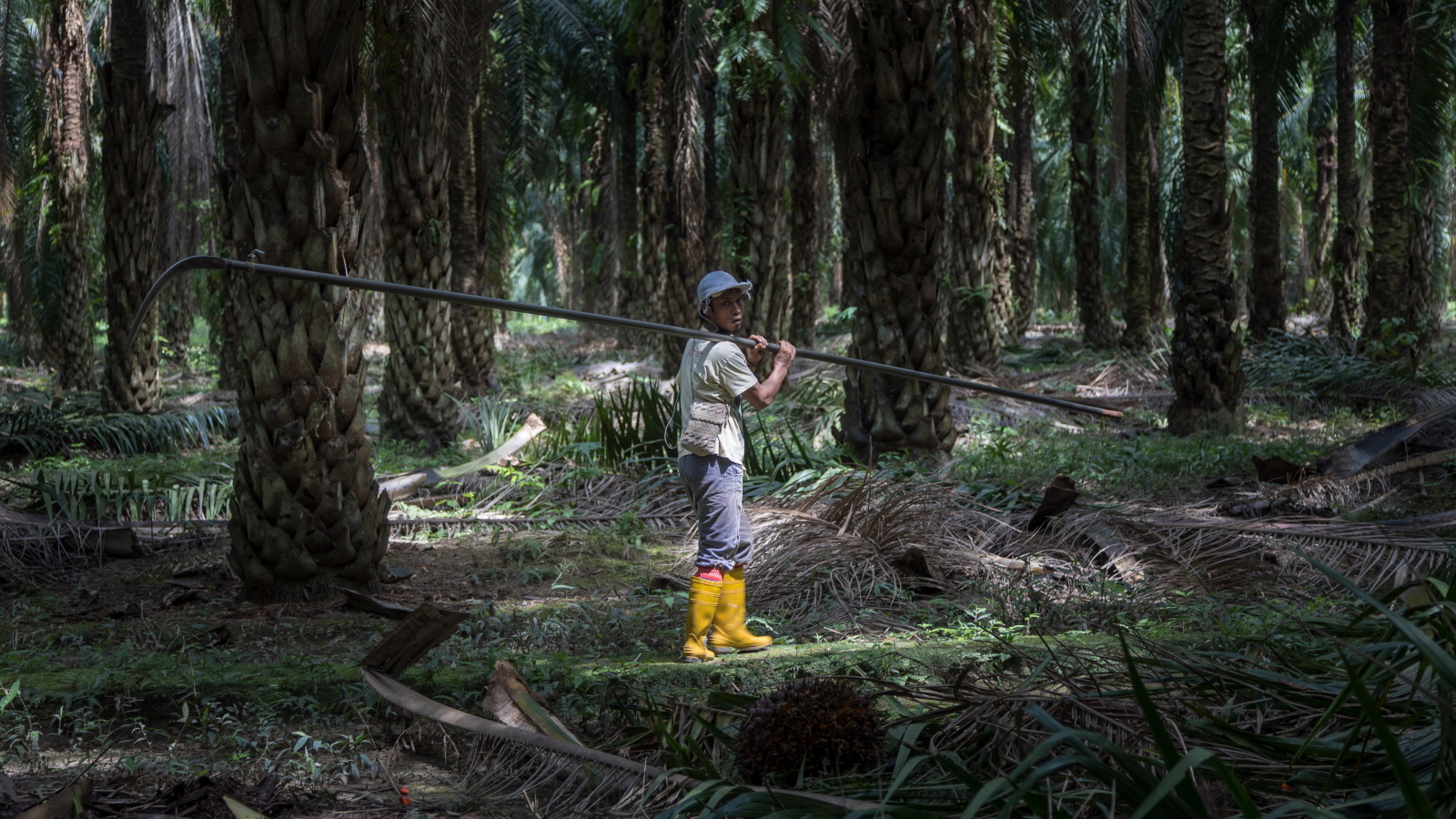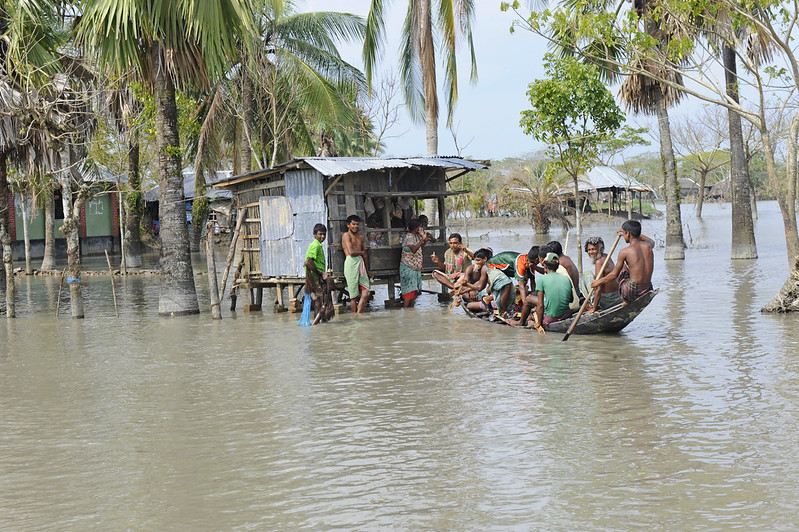Alejandra Padin-Dujon takes advantage of Rihanna’s recent tweet about the Paris Summit on finance and climate change, to write a piece unpacking the implications of such a summit for low-and middle-income countries (LMICs) and small island developing states in particular.
On June 20, pop music superstar, entrepreneur, and philanthropist Robyn ‘Rihanna’ Fenty tweeted:
Hey @SecYellen & #AjayBanga, will you join @miaamormottley and step up for communities hit hardest by climate emergencies? We need you to make bold commitments to finance & debt reforms. I address climate change w/ @ClaraLionelFdn—now it’s your turn. https://t.co/7gBeshKIg7
— Rihanna (@rihanna) June 20, 2023
The tweet appears to be a thinly veiled reference to the ‘Paris Summit for a New Global Financing Pact,’ held June 22-23: Ajay Banga is the World Bank President, and Mia Amor Mottley is Prime Minister of Barbados. PM Mottley is a key figure in international climate policy, due in large part to her ‘Bridgetown Initiative’ proposals on global financial reform to address the debt and climate crises in low- and middle-income countries (LMICs). Both were in attendance.
Rihanna hails from Barbados and was named a National Hero upon the country’s withdrawal from the Commonwealth. Setting aside her impressive record supporting climate advocacy through the Clara Lionel Foundation, there are many reasons why a Barbadian person – or any supporter of climate-vulnerable LMICs – might be invested in Paris Summit agenda items and outcomes. Chief among these issues are a global debt crisis; underwhelming international climate finance to support adaptation, decarbonisation, and recovery; and the lack of a coherent vision between the Global North and Global South to address these. The three pillars are presented below (complemented by song titles from the inimitable Rihanna).
‘B**** better have my money’
Too many LMICs are mired in unsustainable debt that limits public investment in welfare and climate. In the Caribbean, Rihanna’s birthplace, the average debt-to-GDP ratio was 84% in the first quarter of 2022. Gross public debt exceeded 90% of GDP in six countries.
Climate vulnerability exacerbates the debt crisis by necessitating heavy borrowing for post-disaster recovery. In 2017, the island of Dominica was struck by Hurricane Maria – a Category 5 hurricane – and subsequently suffered losses and damages of over 220% GDP. Yet middle-income countries like Dominica struggle to access international lending at concessional rates, and highly-indebted low-income countries risk falling into a permanent debt trap if international climate finance is issued as loans instead of grants.
The mission of the Paris Summit placed heavy emphasis on debt reform and relief to free up fiscal space in developing countries for causes like healthcare, education, and climate resilience. One critical development was the World Bank’s announcement that it would begin placing ‘climate-resilient debt clauses’ (also called ‘pause clauses’) into new lending agreements, pausing debt repayments in times of acute climate disaster. Overall, however, the Paris Summit failed to tackle the structural origins of unsustainable debt burdens (e.g., economically extractive colonial trade dynamics) or the structural solutions that need to be in play (e.g., mass provision of more concessional finance).
‘SOS’
LMICs have done the least of all to cause the climate crisis, yet they suffer the most from its adverse impacts – and remain without access to adequate climate finance. The primary thematic area at the Paris Summit was reforming the multilateral development banks (MDBs) to facilitate greater lending capacity (and potentially more concessional finance as well).
Tensions flared, as they had earlier this month at the SB58 climate negotiations in Bonn, over a key figure: $100 billion. In Copenhagen in 2009, developed ‘Annex I’ countries had promised to deliver $100 billion in international climate finance to developing countries, annually, by 2020. The target was never met – though there is widespread belief that it will be this year – and estimated needs are far higher. (Adaptation needs alone will be up to 3.5 times higher than this all-encompassing figure by 2030.) The failure to meet the $100 billion goal has soured climate negotiations and compromised the credibility of the Global North, particularly in discussions to raise the $100 billion figure to something more ambitious and needs based by 2025 – a target called the New Collective Quantified Goal.
The Paris Summit addressed the climate finance elephant in the room in two modest but significant ways. First, MDBs will increase their lending capacity by $200 billion over the next decade through ‘balance sheet optimization’ and by increasing their appetite for risk while protecting stellar credit ratings. Second, the Summit outcome text acknowledges a potential need for richer countries to provide fresh money to MDBs like the World Bank. While this acknowledgment is neither a concrete promise nor a satisfactory response to accusations of excessive lending (and insufficient grant-based finance) by the MDBs, it was welcomed by Avinash Persaud (PM Mottley’s envoy, and another influential figure).
‘Only [woman] in the world’
PM Mia Amor Mottley has emerged as a formidable force in the world of climate policy and finance, particularly with the launch of her evolving ‘Bridgetown Initiative’ set of proposals in September 2022, in the lead-up to COP28 in Sharm el-Sheikh. Even prior, she had been an outspoken figure for restructuring the global financial system to better serve developing countries, and an anti-colonial leader famous for withdrawing from the Commonwealth in 2021.
The Bridgetown Initiative was the central conversation piece at the Paris Summit, and its influence created pride of place for the Barbadian prime minister at what is also known as the ‘Macron-Mottley Summit’ (inclusive of French President and host Emmanuel Macron). In its current form, the Initiative includes six proposals, ranging from debt reform to leveraging private finance for green transition and trade reform.
A key victory for Bridgetown at the Paris Summit included a target for MDBs to leverage at least $100 billion annually in private sector capital when they lend. There is also talk of new forms of international taxation to increase funding streams to climate finance, such as a widely supported shipping carbon levy to be imposed by the International Maritime Organization.
Concluding thoughts
Rihanna’s tweet on last week’s Paris Summit elevated the profile of an otherwise niche and technical dialogue to the level of mainstream consciousness. While popstar-led exposure or Paris-led pomp and circumstance are no guarantee of concrete results for climate-vulnerable LMICs, the tireless advocacy of the Barbadian PM and the timely tweet by Barbados’ premier international celebrity are altering climate political discourse. We can only hope that these two women join forces again in future.
The views expressed in this post are those of the author and do not reflect those of the International Development LSE blog or the London School of Economics and Political Science.
Image credit: Rihanna i 2016. Av Kim Erlandsen/NRK.CC BY NC SA 2.0. Via https://snl.no/Rihanna.





